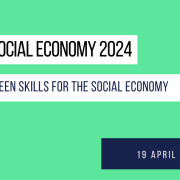![]() Under the project entitled „On the Money Trail – Interactive Book for the Financial Education of Children” [2017-1-PL01-KA201-038534] the analysis about financial education among pre-school children in Poland was prepared.
Under the project entitled „On the Money Trail – Interactive Book for the Financial Education of Children” [2017-1-PL01-KA201-038534] the analysis about financial education among pre-school children in Poland was prepared.
The OECD report places Poland at the lower end of the scale concerning the level of financial knowledge, however PISA 2015 has shown that 15 year olds, got a good results, placing Poland above the OECD average.

The analysis gives a general view of the situation in Poland, through trying answer the following questions:
1) Is there an educational framework for financial education set at national or regional level?
2) Is financial education a compulsory subject in schools (specifically in our age group) or is there extra-curricular programmes covering financial education?
3) What are the main topics covered by the existing financial education scheme?
4) Are there adequate educational materials for the financial education of children of our age group?
5) Are teachers prepared and motivated to teach on financial topics?
6) What are the main positive and negative aspects of the financial education in your country?
Ad. 1) There is no current national strategy for FE in Poland; instead, it is addressed within several broader strategies. The most relevant of these is the ‘Lifelong Learning Perspective Strategy (LLP). Financial education, is included in curricula of some of the compulsory subjects, like Maths, History or Social Studies at different levels of school education. In accordance with the Regulation of the Minister of Education of 14 February 2017, some elements of financial education have been introduced to Kindergarten curricula, like for example: a child should recognize: coins and banknotes (of small denomination).
Ad. 2) As a separate, compulsory subject it is implemented as „Introduction to Entrepreneurship”, but only at secondary level. Additional subject has recently been introduced „Economy in practice”, but it is an extra-curricular subject. At project’s target age group (3-6 years old children) there is no such subject, however there are plenty of extra-curricular programmes and educational projects/initiatives.
Ad. 3) Lifelong Learning Perspective Strategy (LLP), as the most relevant existing strategy, setting out the national strategic framework for lifelong education and training, as well as new curricular subject „Introduction to Entrepreneurship” highlight that the following skills should be developed:
– Positive attitude and enthusiasm
– Communication and negotiation skills
– Assertiveness, creative thinking and ability to make decisions
– Ability to analyse situation and look for opportunities to reach your goals
but also, more specifically relating to finance, with, among others:
– Planning home budget
– Investing
– Understanding basic administrative and law regulations
– Active job seeking
Ad. 4) Very active institution in promoting entrepreneurship in schools is Polish National Bank (NBP). It has been spending around 5 million EUR on the economic and financial education annually. It runs NBPortal.pl (www.nbportal.pl), one of the largest economic education resource worldwide. If offers very broad approach: e-learning, online games, presentations, lesson plans, and more. They are mostly high quality materials, however
in most cases dedicated to older children and adults. There are also materials produced within different educational projects, but finding them is more complicated.
Ad. 5) According to a research conducted by NBP [http://www.e-edukacja.net/_referaty/6_e-edukacja.pdf] 86% of Entrepreneurship teachers are qualified to teach this subject, but only 51% have previous economic background. Most of the them are or have been so far, teachers of PE, History, Mathematics or other subjects, who completed an additional training, preparing them to teach Entrepreneurship. In most cases, they are not experienced in the field, hence their motivation and the way they pass the knowledge may be unconvincing for pupils.
Ad. 6) Negative
– there is no single policy or framework that would make teaching more effective,
– no continuity from kindergarten to adult education.
Positive
– very active role of other actors (NBP),
– many interesting projects, initiatives.
And now – little surprise for children [click on the picture below].

Photo: rawpixel (on pixabay.com)



